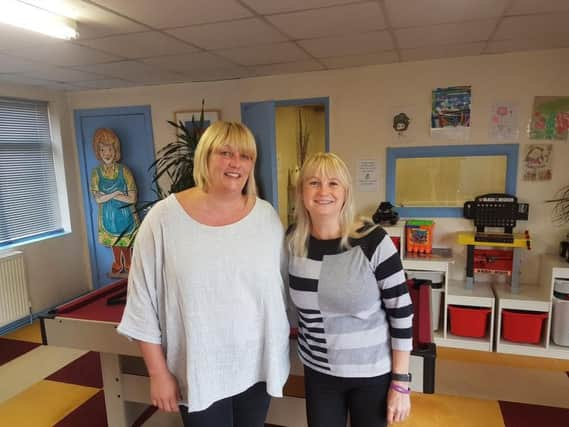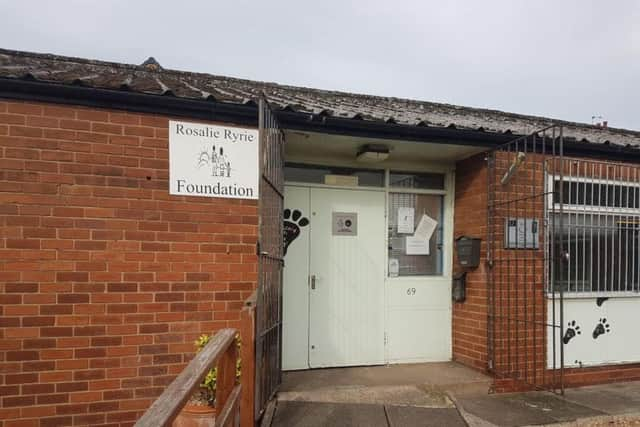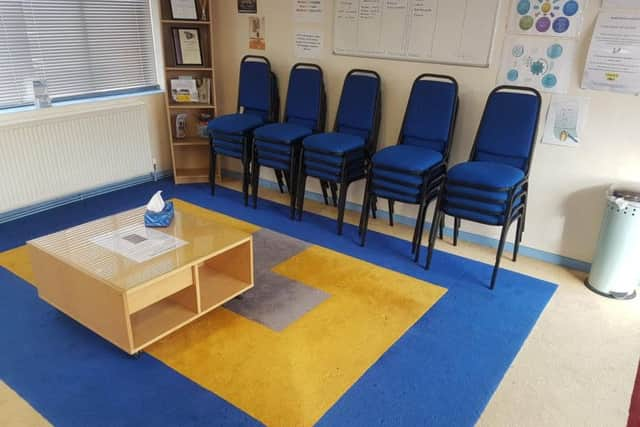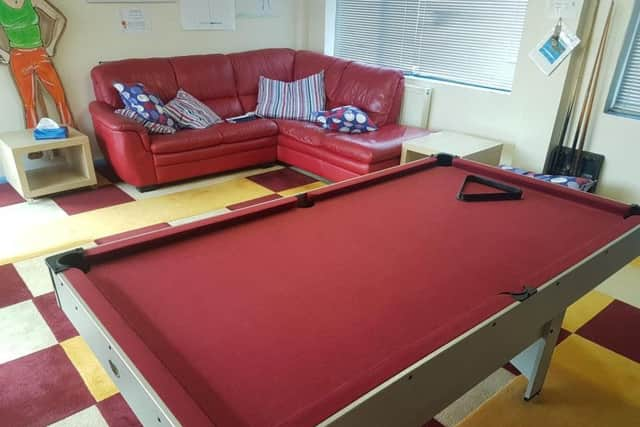Inside the successful domestic abuse charity which helps perpetrators as well as victims


*Real names of abuse victims have not been used
"It's my first time here today," says Tanya, who is here because of the violence she's suffered at the hands of her own teenage child. "I was really nervous before I came, but having spoken to some of the people here I feel a lot better for it."
Tanya is at the award-winning Rosalie Ryrie Foundation, which is based opposite Wakefield Fire Station on Brunswick Street. Since 2007, the charity has been offering guidance and practical support to anyone caught up in the web of an abusive relationship.


Advertisement
Hide AdAdvertisement
Hide AdAnd Tanya is far from alone, with attacks by children against their own parents and guardians one type of domestic violence on the up.
"My eldest was hitting me and my partner," she says. "Because my youngest is so young I couldn't take the chance of having my eldest continuing to live in the house."
As a result, Tanya's eldest is now in the care of another household. She says the pattern of troubling behaviour stemmed from the teenager's difficult relationship with their father. She continues to see her child face-to-face and is hoping that, with help from the Foundation, she can eventually have a happy and united family living under one roof again.
"There are things I could have dealt with better," she admits. "I'm finding the process very hard, but just talking today has been a real help."


Advertisement
Hide AdAdvertisement
Hide AdWhile some abuse charities wouldn't even contemplate helping perpetrators, the Rosalie Ryrie Foundation tries to work with people with a record of violence who want to change their ways, as well as victims like Tanya.
Senior figures at the charity talk about a "family-centred" approach, so that everyone in a troubled home can have their say and play a part in fixing the underlying issues.
Rebecca has been a client of the service for the best part of a decade and is now one of the first friendly faces to greet new and anxious people seeking help here for the first time.
She is still coping with the trauma of losing her children to the care system after her relationship with her husband turned mutually violent.


Advertisement
Hide AdAdvertisement
Hide AdShe backs the charity's approach towards helping everyone affected, regardless of where the blame lies.
"I don't mind it," she says. "If it wasn't for this place my husband wouldn't have got the help he needed to change his behaviour. We're still together today.
"We're all human beings at the end of the day. If people are seeking help because they want to change, good on them."
The charity's founder, Ann Ramsden, named it after her own mother and has been at both ends of domestic violence. Ann's tempestuous relationship with members of her own family led to her physically hurting others herself.


Advertisement
Hide AdAdvertisement
Hide AdShe's keen to stress that while people who are violent are not judged themselves once they step inside, they are left in no doubt that what they have done is wrong, whatever its root causes.
"We’re very frank," Ann says. "We don’t mess about, we don’t sit here going, “Oh bless you”. We know history's got a lot to with people's behaviour, but it can't be used as an excuse.
"But we're not here to condemn them for life. We don’t look at people as bad because of their behaviour, we concentrate on why their behaviour is bad.
"Domestic abuse isn't acceptable in any form, but at the end of the day that person that's doing it is somebody's mum, or dad, or sometimes child."
Advertisement
Hide AdAdvertisement
Hide AdThe recent revelation that repeat domestic incidents have risen by almost half in Wakefield - more than anywhere else in West Yorkshire - is reflected in the 400 new cases referred to Ann and her team by the authorities in 12 months.
Bearing in mind the long-term work they're doing with families already under their wing, it shows how trusted the charity has become, but also indicates the scale of the problem.
But why are repeat incidents going up? Ann thinks that a lack of early intervention is part of the problem, and is critical of the current system where perpetrators are convicted in court before being offered help.
"For me it should be like when you commit a driving offence and you get sent on a course," she suggests. "Why can't it be like that instead of waiting for the problem to get worse and worse?
Advertisement
Hide AdAdvertisement
Hide Ad"If we can get them in early then it will make things better. There's so many people out there who still don't know support is available.
"But if the people doing it don't want to engage then that's when the courts have to come in."
Hundreds of families have had their lives transformed by the Rosalie Ryrie Foundation.
But like all charities it is reliant on generosity, and moreso now than ever before as it tries to plug gaps left vacant by the stripping back of public services.
Advertisement
Hide AdAdvertisement
Hide AdAusterity has resulted in police and social services becoming increasingly keen to pass caseloads onto the voluntary sector.
The coming years will represent a challenge for good causes like this one, but for men and women like Tanya taking their first steps towards change, history shows they're in good hands.